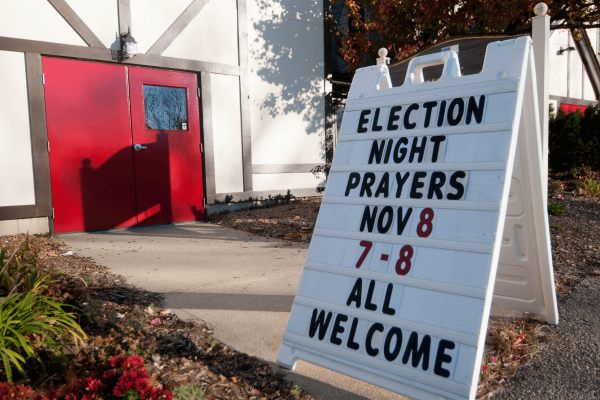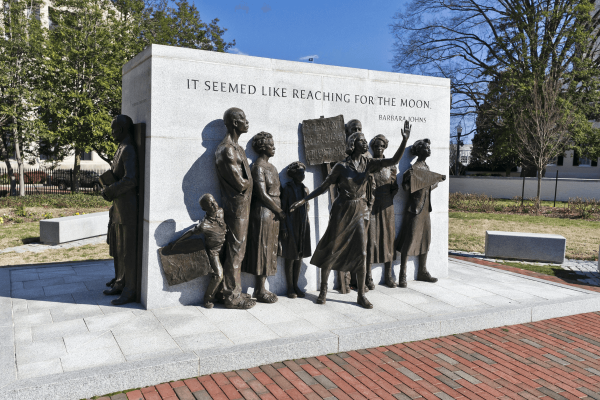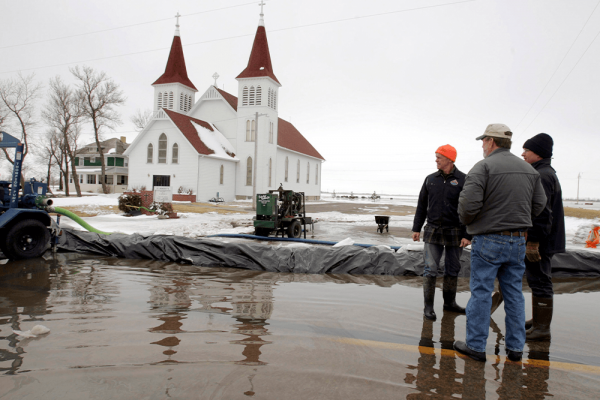On June 1, for the North Carolina residents of downtown Durham, the morning’s new mercies came in the form of Chappell Roan’s song “HOT TO GO!” being played from the century-old bell tower of Duke Memorial United Methodist Church.
The Supreme Court has unanimously dismissed a case that would have limited access to mifepristone, one of the two drugs used in a medication abortion. The decision leaves access to the abortion drug unchanged for now.
Commitment to democratic norms is not a matter of political partisanship. The vast majority of Americans believe in, practice, and defend democracy — but there are partisan elites with powerful antidemocratic impulses gaining a foothold. People of faith have values rooted deeper than any political ideology and have led powerful pro-democracy movements around the world. In Hope and History, Vincent G. Harding reminds us that history, like our democracy, is not a spectacle but a task; it’s “a destiny that is still ours to create.”
You don’t have to be a civil rights history nerd to understand why these milestones matter today: In case you haven’t noticed, we’re currently in the midst of a major backlash against racial justice, including many of the rights and freedoms that inspired civil rights leaders. These include book bans, assaults on DEI programs, the Supreme Court’s decision to end affirmative action programs in higher education, and forestalled efforts to transform our justice system and end racialized police violence. These courageous actions taken by our predecessors aren’t just a milestone to celebrate with a nice speech and a historical plaque; these actions reverberate through time, offering us inspiration and resilience for the unfinished cause of freedom and justice.
This June, I’m anchoring myself in a spirit of gratitude by focusing on the people who’ve left a meaningful mark on my spiritual journey. The list of people below is not an exhaustive one, but I hope that by sharing the way they’ve impacted my life, I can impart a small portion of their courage, kindness, and wisdom to others. Some of the people I mention below identify with the LGBTQ+ community while others are simply allies and advocates. What matters is that regardless of sexual orientation or gender identity, each of us was created by an incredible God who delights in our presence, and who invites us to join them in beloved community
The Southern Baptist Convention, the largest Protestant denomination in the U.S., on Wednesday voted to condemn the use of in vitro fertilization, signaling the campaign by evangelicals against abortion is widening to include the popular fertility treatment.
In every U.S. congregation, there are likely people experiencing grief, fear, or anger on behalf of creation. Most Americans now know that the climate is changing; according to recent surveys, a majority now also feel some level of climate-related stress or anxiety. But when terms like “climate grief” and “eco-anxiety” show up in the news, stories often point people toward individual behavior changes or activism, according to a recent study in the journal Environmental Research: Health. Missing from the conversation is the spiritual dimension of the climate crisis and the role that faith communities can play.
Sports and human rights organizations have called on International Olympic Committee president Thomas Bach to help overturn a ban on French athletes wearing the hijab, saying it undermines celebrations of the first gender-equal Olympics.
The pope has again used a highly disparaging word against gay people for which he had already apologized last month, ANSA news agency said on Tuesday.
I won’t impose my 21st-century language or conceptions on this person, and say that he was trans, non-binary, gender non-conforming, or queer, but it’s clear that he did not conform to the social understanding of gender binaries or sex in the ancient Greco-Roman or Jewish world. There’s no getting around that. He was also from one of the farthest-off places early Christian disciples had heard of. The Ethiopian in this text is likely not from the Ethiopia that we know today, and instead is likely from a place called Kush that today is now part of South Sudan.









